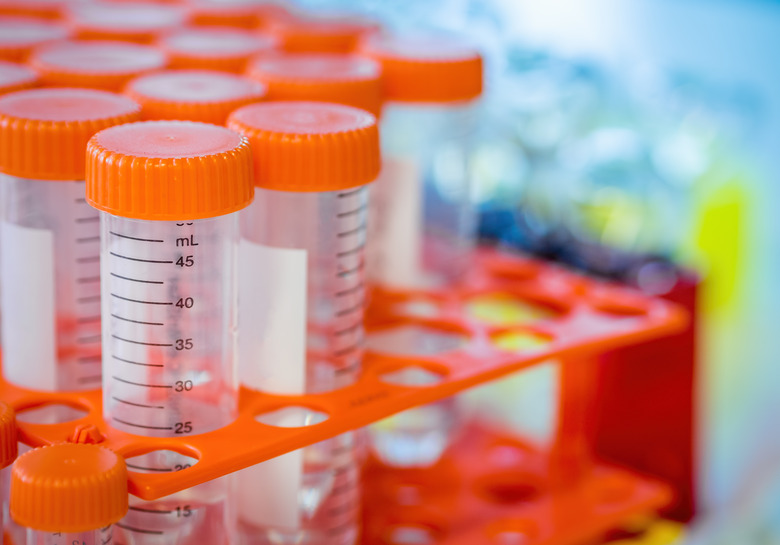How To Calculate Milligrams Per Milliliter
Milligrams per milliliter (mg/mL) is a measurement of a solution's concentration. In other words, it's the amount of one substance dissolved in a specific volume of a liquid. For example, a salt water solution of 7.5 mg/mL has 7.5 milligrams of salt in each milliliter of water. To find the concentration of a solution, divide the dissolved mass by the volume of the solution.
1. Convert Mass to Milligrams
If your mass is in grams, convert it to milligrams by multiplying by 1,000. For example, if you have 4 grams, work out 4 x 1,000 = 4,000. If your mass is in kilograms, multiply by 1,000,000. For example, if you have 4 kilograms, work out 4 x 1,000,000 = 4,000,000.
2. Convert Volume to Milliliters
If your volume is in litres, convert it to milliliters by multiplying by 1,000. For example, if you have 2 liters, work out 2 x 1,000 = 2,000. If your volume is in kiloliters, multiply by 1,000,000. For example, if you have 0.5 kiloliters, work out 0.5 x 1,000,000 = 500,000.
3. Divide Mass by Volume
Divide the mass in milligrams by volume in milliliters to find concentration in mg/mL. For example, if you have 8,000 milligrams of sugar dissolved in 200 milliliters of water, work out 8,000 ÷ 200 = 40. The concentration of the solution is 40 mg/mL. This means there are 40 milligrams of sugar dissolved in each milliliter of water.
Cite This Article
MLA
Gillespie, Claire. "How To Calculate Milligrams Per Milliliter" sciencing.com, https://www.sciencing.com/calculate-mg-per-ml-6954378/. 2 May 2018.
APA
Gillespie, Claire. (2018, May 2). How To Calculate Milligrams Per Milliliter. sciencing.com. Retrieved from https://www.sciencing.com/calculate-mg-per-ml-6954378/
Chicago
Gillespie, Claire. How To Calculate Milligrams Per Milliliter last modified March 24, 2022. https://www.sciencing.com/calculate-mg-per-ml-6954378/
